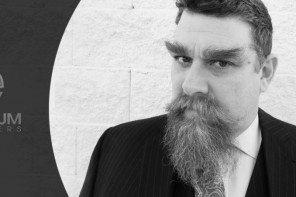Investor Insight: Fred Gross, New York, NY
Everyone faces challenges, but it’s how you face those challenges that makes the difference between you persevering and becoming successful or failing and buckling under the pressure. Fred Gross, founder of ManhattanCanna LLC, is one of those who made the right move, had the right perspective, and used positivity and the power of flexibility to power through and become the successful investor he is today! You learn something from every investor we highlight and we ensure that this peer into how Fred thinks, will open your mind that much more.
How did your entrepreneurial journey begin?
I began as an entrepreneur about 12 years ago when I became a hedge fund manager. After graduating from business school at NYU in December 2001, I was left in a rather troubling situation; I had an MBA degree in Finance and Economics and there was a job market implosion in NYC due to the 9/11 attacks 3 months earlier and all job prospects I had been exploring were put on “hold” because of it. I realized quite quickly that I was going to need to change my career path – a desk job as an associate in finance was not going to happen.
Using my previous experience as a sell-side foreign exchange derivatives trader, I decided to try my skill-set and strategies I had developed on the buy-side. It was not an easy adjustment but one that I am extremely proud of and that taught me the importance of “re-inventing” myself. By 2003, I was working for a volatility based hedge fund in Fort Lee, NJ as a proprietary trader. By 2005, I had developed and implemented a strategy that was focused on convexity and skew. In 2007, the strategy produced a return of over 300%. In 2008, the strategy produced a return of over 75%. In 2010, I launched my own fund, with three partners, called VS Capital Partners. After 2.5 successful years, the implementation of Dodd-Frank had devastating effects on the OTC derivatives market. As a firm we quickly recognized this, along with the investor base beginning to squeeze portfolio management fees. VS Capital Partners closed in December 2013 and it was time to re-invent yet again. This time in the exciting space of private equity cannabis.
I realized quite quickly that I was going to need to change my career path – a desk job as an associate in finance was not going to happen.
What was the motivating factor for you to invest in the cannabis industry?
In a world of uncertainty, record-breaking high equity prices, an extremely strong dollar, and very low interest rates; I see no space out there as exciting as this, in terms of exponential growth over the next 5 years.
One thing many first-time entrepreneurs struggle with is raising money. How would you suggest someone to overcome this problem?
Crowdfunding on CannaFundr!!! In all honesty, this is an extremely difficult challenge, especially in the cannabis industry. Hiring sales and marketing is expensive and getting accredited investors to invest at minimums of say $50-$100k is very challenging. CannaFundr gives investors the opportunity to get their “feet wet” and gives entrepreneurs the opportunity to tap into smaller amounts of investment capital without having to administer up to 100 investors.
What are the key reasons why startups fail?
The number one reason why most start-ups fail, in my view, is their inability to execute. Start-ups need to remain focused, lean, flexible, and need to stop being stubborn on offering terms and finding strategic partners as investors – not just investors who want to make money. I have seen so many fail by constantly changing their pitch, their strategy, hiring too quickly, not going after the right investor pool… the list goes on and on. There needs to be a goal, a strategy, and a team able to execute on that.
Can you share your thinking on how to identify a company as a great opportunity?
This is a difficult question, especially in the cannabis space where valuations tend to be quite high, no pun intended. I believe that there are two components to a great deal:
- Who the people are that are involved? What is their pedigree? Who have they surrounded themselves with?
- What is the valuation and does it make sense – I want to see companies that can scale – quickly and efficiently. SCALE is key for me as an investor.
When a company is dealing with internal issues due to disagreements between multi-partners, what role and procedures do you play to save your investment?
I personally like to “make the peace.” My typical strategy would be to speak to the various partners individually and then come up with a game plan in having a group meeting. I see too many investors throw fuel into the fire. I tend to have the opposite approach and make people see that owning a % of something great is ALWAYS better than owning a % of nothing.
How do you build a sustainable competitive edge?
It isn’t easy, especially with two young children. I believe that it is critical to have people around you that are knowledgeable, trustworthy, and give honest opinions. You are only as good as the people you surround yourself with. In the cannabis space I have surrounded myself with some of who I believe to be the best of the best.
In the cannabis space I have surrounded myself with some of who I believe to be the best of the best.
As an investor, what are some of the key things you wish cannabis entrepreneurs knew?
You aren’t worth as much as you think you are and if you aren’t lenient on terms, you will not get the right strategic partners as investors. It is critical to form partnerships in this industry. We are all in this for the long haul and we all need each other as colleagues, mentors, and yes, even friends.
What needs to happen in order to create a billion-dollar company in the cannabis industry?
A true billion-dollar company in this industry, right now, is going to be hard to recognize. Due to varying state laws, banking regulations, federal law, etcetera, it is going to have to be a company that has the resources to scale quickly using branding, licensing, and IP from state to state.
How do you decide between shutting down, keep funding, or selling your start-up?
The writing is usually on the wall. You have to look at the cash bleed and what the investor base is telling you. This is where strategic partners are so helpful. To keep funding a business that is failing is such an enormous mistake and too many entrepreneurs drink their own Kool-Aid and do so. Having the right partners in place, the right metrics, and knowing when to “stop out” is crucial.










